You know that cliché about how marrying someone means marrying their family? When you’re an Indian woman, that cliché is your life. Your in-laws are just as much a part of your marriage as you are – maybe even more so. Indian women have had to include their in-laws in their marriages for many generations. How has this impacted them? In many ways, of course. Keeping up with the Indian in-law’s expectation is a task. Overbearing Indian in-laws can actually destroy a couple’s life and the woman is the worst sufferer.
Moving in with in-laws was a tradition
Table of Contents
Moving in with your husband’s parents is an Indian family tradition. The four of you are supposed to live happily ever after – together. If your husband has brothers, the more the merrier. But Indian family traditions passed on through generations is often becoming the noose around a woman’s neck.
In the past, girls would be married as young as 13 years old. The purpose of moving in with your husband’s parents, as a new wife, was so that your mother-in-law could teach you how to be a woman. It was her job to guide you in your womanly duties. This tradition, living with your husband’s parents, made sense when the married couple were still children and needed adult supervision.
Child marriage is no longer accepted, women are getting married as fully grown adults now – so why is it that mothers-in-law are still trying to raise them?
The pressure of living with in-laws
Thirty-two years ago M and D fell in love. They were inseparable until M moved in with D and his parents. They then became very separable. The pressure of having to be the perfect housewife and daughter-in-law became too much for M, so she left D until he agreed to cut the number of people in their relationship, and home, down to two. M demanded what she wanted, she has never had a problem with that – but so many other Indian women never do because they fear to upset the tradition of family bonds. What happens to them?
Loss of independence for the daughter-in-law
A 27-year-old woman, S, grew up in a home where she was raised to be independent. Her parents encouraged her to be her person and follow her dreams. She never felt like she was being controlled. When she got married, she moved in with her husband and his parents and now feels like she has lost all the independence she had with her parents. Her overbearing Indian in-laws are making her life hell.
She is living with strangers around whom she can’t be herself. “I thought everything will be like before, but no… when a girl comes to stay with her in-laws nothing seems to be like before,” she says. Her whole life has been uprooted and destroyed because she fell in love.
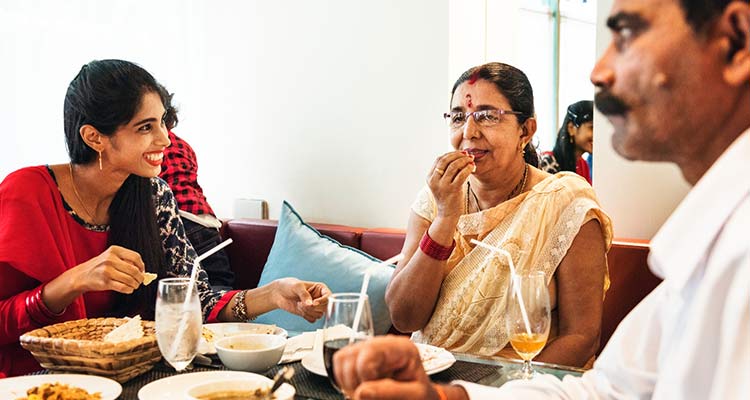
You can’t be yourself around your in-laws
S agreed to live with her in-laws because she thought they were open-minded. As she got to know them, she realised she was wrong. It turns out you don’t know someone until you have lived with them. S is made uncomfortable constantly by her father-in-law demanding she produces a grandson. On several occasions, he has said to her, “Jaldi se humein Ek pota de do, phir ye parivar pura ho jaiga,” which means that she needs to give him a grandson to make the family complete.
The overbearing in-laws make all the decisions
S wants to wait a couple of years into the marriage before having children so she can enjoy starting a life with her husband. She had plans for them to travel and try new things together before becoming parents, but her father-in-law has other plans for her. Like many Indian women, S has too many people in her marriage. She can’t make her own decisions about her life and body because of Indian in-law culture.
No woman is ever good enough for the son
The parents of Indian sons raise them as if they are the kings of the world. Having a son is the greatest joy, and because of this they are pampered and spoiled their entire lives. When their precious baby finds a wife, parents expect that she will continue to hang the moon for him as they did for the first part of his life.
No woman is ever good enough for their son, because they have unrealistic expectations on what kind of wife their son deserves.
S will never be good enough for her in-laws because they will never see her as what their son deserves. S thinks it’s her fault and says, “I don’t know what’s the problem with me? I feel I am always wrong?” She doesn’t understand why her in-laws can’t accept her and frankly. Instead of being excited for a future with her husband, she is scared.

S says, “If this is happening to me within these few months of my marriage then I don’t know my whole life is ahead of me.” S is scared the familial abuse she faces will only escalate as time goes on.
Related Reading: 10 Tips To Deal With Your Manipulative Mother-In-Law Without Ruining Your Marriage
Today’s girls want a separate home
Today’s generation of Indian women is choosing to break away from tradition to avoid feeling like S does. According to Hindustan Times, 64 per cent of women are choosing to start families in a home separate from their in-laws. This is largely because newlywed women begin to clash with their mothers-in-law shortly after marriage. Before marriage, mothers love their future daughters-in-law, they love the idea that their son has found someone to make him happy. After marriage, this changes. Mothers begin to feel insecure about their sons not needing them anymore and blame the wife for stealing their child away from them. These mothers dealt with this from their mothers-in-law, who pushed them around. This leads to a toxic mother-in-law and daughter-in-law relationship which is kind of inescapable.
Will the mom-in-law abuse cycle break?
This toxic behaviour is passed down through every generation of daughters-in-law. Will this up and coming generation be the one to break the cycle? Modern women are fighting back and I hope it is a fight we can win.
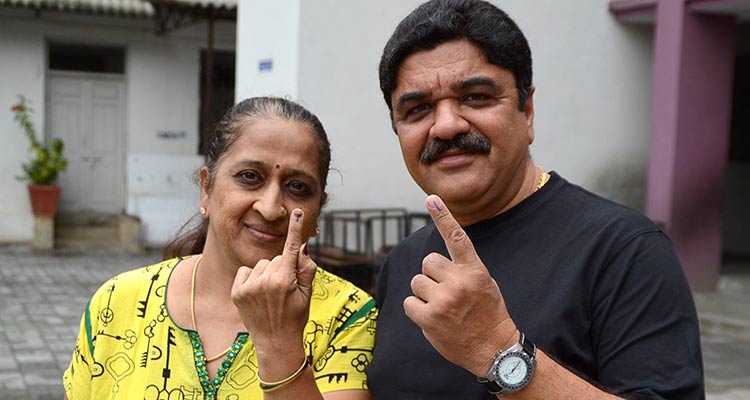
L believes that sexism is the root of the problem between women and their in-laws. There is an old Indian saying that dictates that daughters are “paraya dhan” while sons are “budhape ka sahara” which means that “daughters leave the household because they are meant to live in another household. We are just keeping them. Then we will pass them on. And men are our crutches in old age who will take care of us.”
The irony of the situation
The irony of this is that sons don’t do the taking care of, the daughters-in-law do. Getting a daughter-in-law is getting a free housekeeper, it’s their duty to take care of everyone.
The way a son takes care of his parents is by finding a wife to do it for him. His mother gets to retire as the homemaker and pass the cleaning, cooking, ironing, and other chores down to someone else. This has been an endless cycle for Indian women.
According to L, who is firmly trying to take a stand on the issue says, “It is the wife who cleans their clothes because they are old. It is the wife who nurses them when they are sick.” L has a modern approach to her duties as a daughter-in-law and says “Here is this thing. My in-laws did not raise me. They are strangers. And whatever they might say, I will never be their daughter. We can get close if they are nice, but most often, in-laws in India are not nice to their daughters-in-law. I have no moral obligation to take care of them.” L refuses to accept the sexist plans that have been made for her life, like many modern Indian women.
Daughter-in-law should choose her new home
L’s philosophy is simple, treat people how you want to be treated. “I have seen loads of men who get sentimental and angry at their wives when they refuse to live with their in-laws after marriage. I always feel like asking them why don’t you live with your in-laws?”
Husbands should stand up for their wives
A large reason why in-laws have so much power is that husbands are not standing up to their wives. They are afraid of upsetting their parents, who come first in their lives. K, a woman who has suffered through this reality, spent many nights crying herself to sleep when no one could hear her during the first years of her married life. She says, “My hubby used to console me but could tell nothing to his parents or sister about their wrong behaviour to me.”
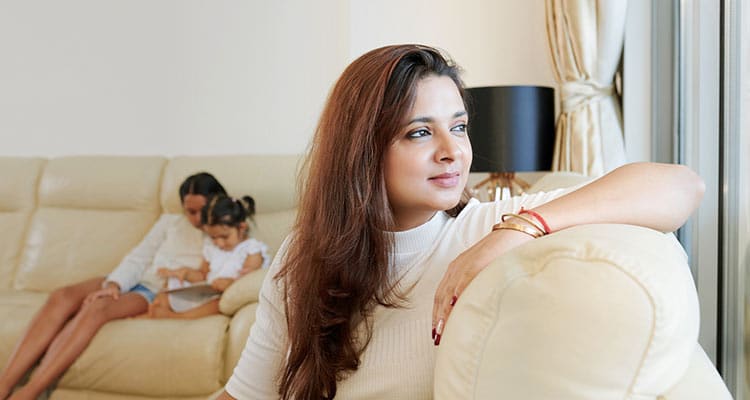
She was told by her father-in-law that she had to endure hurtful comments from her mother-in-law because she was just trying to help. K has had to endure being called fat during her pregnancy, and even being accused of hiding food in her room to eat more when no one was looking. After 10 years of suffering, she has had enough. K says “I have lost all peace of mind and can’t be happy. I am tired of my life and even think of suicide but love my children too much to let go of my life.” K is not alone Indian in-law culture is driving women to suicidal thoughts and behaviours. India has the third-highest world suicide rate for women. Overbearing in-laws and Indian family traditions are ruining lives and are responsible for many divorces.
When will enough be enough?
The bride is an addition to an existing unit
Every Indian woman has her theory of why living with your in-laws is a bad idea. V believes that living with in-laws doesn’t work because they are already an established unit and you are just an addition. She says, “In his parent’s house, a man has always been a child. His parents call the shots on behalf of everyone in the family. After he gets married, the wife is an addition to the children in the family. The family continues to function the same way. The couple never gets to be an independent family unit which has their own set of rules.”
V doesn’t believe it’s possible to have your family unit in someone else’s house because there is a lack of control on the parts of the “children” of the unit. “The girl does not get to raise her children in her way or stand by values she believes in. Everything is always about what the guy’s parents feel is right, they would decide how to raise her child.” This is not the kind of life V wants. She refuses to follow the rules a stranger sets for her.
Daughter-in-law is the glorified maid
R has to follow the rules her mother-in-law sets for her. She is not allowed to work, use protection during sex with her husband, or leave the house alone. In addition to this, it is R’s responsibility to cook, clean and do laundry- for everyone in the house, including her brother-in-law. “I have to cook food all alone for 5 members including my brother-in-law. Also different food for different people. With onion potato for hubby and brother-in-law, without onion Jain food for mother-in-law, without oil healthy food for father in law.” R says, “I am pointing a few things which make me feel like a maid rather than a daughter-in-law.” Unfortunately, this is a universal feeling for Indian women.
I am an American Indian, meaning I got to escape the life my grandmother had. I grew up hearing her stories of being a dutiful daughter-in-law. I remember thinking about how brave she was to leave her first husband’s home and find true love, unconditional love that didn’t include being a maid. Not every woman has the luxury of leaving when they can’t take it anymore. According to India Today, India has the lowest divorce rate globally. The divorce rate in India is less than one per cent. This is because divorce is simply unacceptable, a divorced woman brings shame to her family. Low divorce rates look good on paper, but in reality, it stands for oppression.
The absence of a divorce does not mean the presence of love.
Indian women need to choose a better life

Some of the women I talked about are in arranged marriages, which means the couples’ families paired them up, but most of them were in love marriages. Love marriage means the couple got married by their own choice- because they love each other. The love these women found, unfortunately, was not unconditional. The condition these women have to adhere to is pleasing their in-laws to keep their husbands happy. They have to constantly live up to their in-laws expectations. Their husbands can’t love them if they are not good, obedient daughters-in-law. Is that a love marriage, or an obedience marriage?
Indian daughters-in-law lose their individuality when they move in with their husband’s parents. They are put in a box carved from ancient tradition and told to smile while their puppet strings are being attached. More and more women are choosing to break the tradition, but there is still a long way to go.
Mother-Son relationship: When She Won’t Let Go Of Her Adult Son Even After Marriage
Your contribution does not constitute a charitable donation. It will allow Bonobology to continue bringing you new and up-to-date information in our pursuit of helping anyone in the world to learn how to do anything.








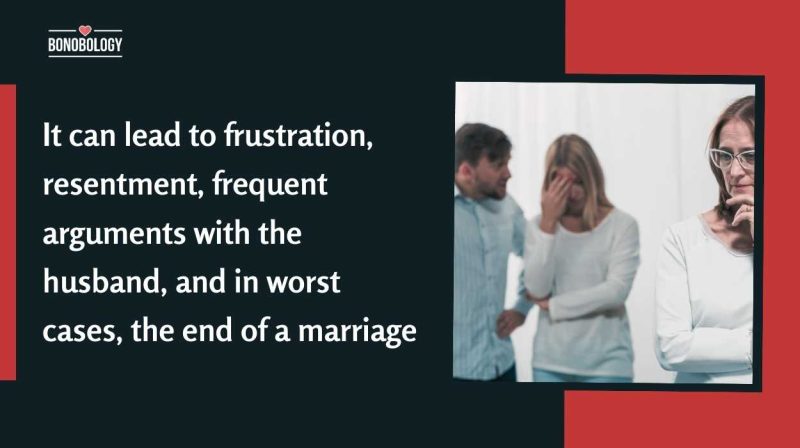

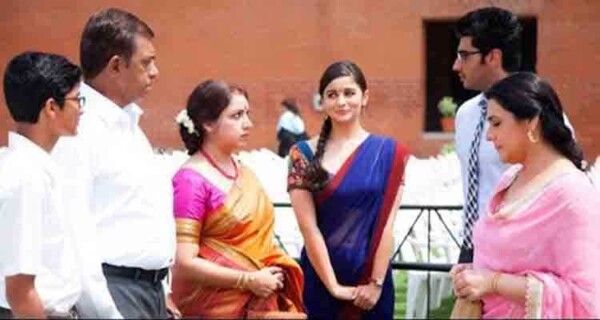











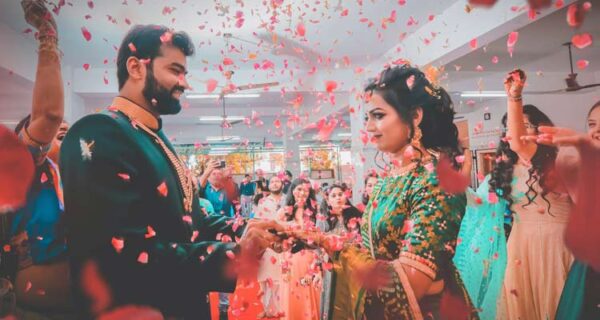
Thank you for writing this and shedding light to a topic many, MANY women can relate to. This is something that ruins a wonebs life gehibd curtains and goes untold due to the nature if these situations.
We are glad you liked the article.